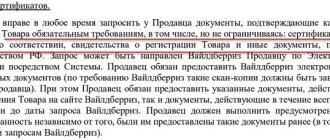What is the fine for drugging minors?
Criminal Code of the Russian Federation Article 151. Involvement of a minor in the commission of antisocial actions
(as amended by Federal Laws dated December 8, 2003 N 162-FZ, dated December 21, 2013 N 365-FZ)
(see text in the previous edition)
shall be punishable by compulsory labor for a term of up to four hundred eighty hours, or correctional labor for a term of one to two years, or arrest for a term of three to six months, or imprisonment for a term of up to four years.
(as amended by Federal Law dated December 7, 2011 N 420-FZ)
(see text in the previous edition)
(as amended by Federal Law dated July 2, 2013 N 185-FZ)
(see text in the previous edition)
shall be punishable by restriction of freedom for a term of two to four years, or arrest for a term of four to six months, or imprisonment for a term of up to five years with or without deprivation of the right to hold certain positions or engage in certain activities for a term of up to three years.
(as amended by Federal Law dated December 27, 2009 N 377-FZ)
(see text in the previous edition)
(as amended by Federal Law dated December 8, 2003 N 162-FZ)
(see text in the previous edition)
shall be punishable by imprisonment for a term of two to six years, with or without restriction of freedom for a term of up to two years.
(as amended by Federal Laws dated December 27, 2009 N 377-FZ, dated December 21, 2013 N 365-FZ)
(see text in the previous edition)
Note. This article does not apply to cases of involving a minor in vagrancy if this act was committed by a parent due to a combination of difficult life circumstances caused by the loss of a source of livelihood or lack of place of residence.
(note introduced by Federal Law dated December 8, 2003 N 162-FZ)
Source
Corpus delicti
An offense is considered committed when an adult, competent person has carried out actions that prompted a minor to drink alcohol. It does not matter whether the drinking took place.
Please note: The fine for selling alcohol to minors is provided by law in the amount of 30 to 50 thousand for individuals and from 300 to 500 thousand for legal entities. In addition, repeated violations result in criminal liability. The seller faces correctional labor for up to 3 years. Read more
The object of the crime is the physical and mental health of minors. The intent must be direct, that is, the guilty person consciously committed actions to involve a minor. Motives do not play a role in determining guilt, but may be taken into account when determining punishment.
Examples of involving minors in drinking alcoholic beverages include:
- Drinking alcohol in the presence of children with an offer to join them.
- Purchasing alcoholic beverages at the request of a child and then handing them over.
- Forcing people to drink alcohol using threats, blackmail, etc.
- Sale of alcohol to a minor at a retail outlet. Moreover, if the cashier was unable to correctly determine the age by appearance, this does not relieve him of responsibility and entails a fine.
The administrative and criminal code covers the involvement of children in drinking any alcohol, including homemade alcohol (wine, liqueurs, etc.), beer and low-alcohol drinks.
Article 151. Involving a minor in committing antisocial acts
Article 151. Involving a minor in committing antisocial acts
GUARANTEE:
See comments to Article 151 of the Criminal Code of the Russian Federation
Information about changes:
Federal Law No. 365-FZ of December 21, 2013 amended Part 1 of Article 151
shall be punishable by compulsory labor for a term of up to four hundred eighty hours, or correctional labor for a term of one to two years, or arrest for a term of three to six months, or imprisonment for a term of up to four years.
Information about changes:
Federal Law No. 185-FZ of July 2, 2013 introduced amendments to Part 2 of Article 151, which come into force on September 1, 2013.
shall be punishable by restriction of freedom for a term of two to four years, or arrest for a term of four to six months, or imprisonment for a term of up to five years with or without deprivation of the right to hold certain positions or engage in certain activities for a term of up to three years.
Information about changes:
Federal Law No. 365-FZ of December 21, 2013 amended Part 3 of Article 151
shall be punishable by imprisonment for a term of two to six years, with or without restriction of freedom for a term of up to two years.
Information about changes:
Federal Law No. 162-FZ of December 8, 2003 supplemented Article 151 with a note
Note. This article does not apply to cases of involving a minor in vagrancy if this act was committed by a parent due to a combination of difficult life circumstances caused by the loss of a source of livelihood or lack of place of residence.
GUARANTEE:
On the judicial practice of applying legislation regulating the specifics of criminal liability and punishment of minors, see Resolution of the Plenum of the Supreme Court of the Russian Federation dated February 1, 2011 No. 1
Source
Who wants to introduce a separate article on the purchase of alcohol by minors?
In March 2021, State Duma deputy Vitaly Milonov proposed to the head of the Ministry of Internal Affairs, Vladimir Kolokoltsev, to evaluate the idea of introducing administrative liability “for citizens who transfer alcohol and tobacco-containing products for consumption to minors, bypassing existing laws and regulations,” according to a RIA Novosti report. In his address, the parliamentarian described how teenagers approached him in one of the shopping centers in St. Petersburg and asked him to buy them cigarettes in a nearby store. According to Milonov, there is a gap in the legislation: “Adult citizens can freely purchase goods prohibited for children and legally transfer them to them.”
Similar legislative initiatives have arisen at the regional level. In October 2021, Bashkir deputies proposed introducing a bill prohibiting adults from purchasing alcohol for minors, the local portal news102.ru reported. In December of the same year, a draft law on introducing responsibility for the purchase of alcohol for teenagers was prepared in the Tyumen region; it was submitted to the regional Duma by the regional prosecutor Vladislav Moskovskikh , as reported by the Uralinformburo agency.
Is it possible to sell non-alcoholic beer and wine to children? More details
Responsibility for the consumption of alcohol-containing and alcoholic products by minors
Responsibility for the consumption of alcohol-containing and alcoholic products by minors
Measures of administrative liability of adults for consuming alcoholic beverages in public places are regulated by Article 20.20 of the Code of the Russian Federation on Administrative Offenses (hereinafter referred to as the Administrative Offenses Code of the Russian Federation), the first part of which establishes that a fine is imposed for consuming alcoholic beverages in places not intended for this purpose. The list of places where the drinking of alcoholic beverages by minors and adults is prohibited is contained in Federal Law No. 171-FZ of November 22, 1995 and includes educational institutions, public transport and stops, markets and large gatherings of people, residential areas (elevators, entrances, parking lots) and rest.
When alcohol consumption in public places is carried out by minors under 16 years of age, the degree of responsibility is determined on the basis of Article 20.22 of the Code of Administrative Offenses of the Russian Federation. In this case, parents or other legal representatives of minors will bear responsibility under this article in the form of an administrative fine in the amount of one thousand five hundred to two thousand rubles.
Article 14.16 of the Code of Administrative Offenses determines the procedure for bringing to justice persons who violate the rules for the sale of alcoholic products. The sale of alcohol to minors is qualified under this article. If alcohol is sold to a teenager in a store, the seller, the director of the outlet, as well as the company or legal entity will be punished for the offense under the Administrative Code. The amount of recovery depends on the status of the seller:
for citizens in the amount of thirty thousand to fifty thousand rubles;
In addition to administrative punishment, for the sale of alcohol to children under 18 years of age, criminal liability is provided under Art. 151.1 of the Criminal Code of the Russian Federation, if a person has been repeatedly charged with such an administrative offense. These persons will face punishment in the form of a fine in the amount of fifty thousand to eighty thousand rubles or in the amount of wages or other income of the convicted person for a period of three to six months, or correctional labor for up to one year with deprivation of the right to hold certain positions or engage in certain activities. for a period of up to three years or without it. To avoid imprisonment or a large fine, sellers are allowed to require from buyers an identification card or other document that can prove age.
In the city of Slantsy in 2021, police officers brought 21 people under Art. 6.10 of the Code of Administrative Offenses of the Russian Federation, of which a mother was brought to justice for allowing her two-year-old daughter to try an alcohol-containing drink; three minors ended up in intensive care due to the consumption of ethanol, under Art. 14.16 of the Code of Administrative Offenses of the Russian Federation, three persons were brought to administrative responsibility, under Art. 151.1. The Criminal Code of the Russian Federation brought one person to criminal liability.
Source
Inducement to drug use: new amendments
On February 17, the Federation Council approved a bill on criminal liability for inducing drug use on the Internet. The sentence in the case can reach up to 15 years behind bars. What is the meaning of the law, why is it being adopted today, and can it influence the situation with the sale and use of narcotic substances?
Differences in law
A law establishing criminal liability for persuading a person to use illegal substances through telecommunications networks has already been sent to the president for signature. It is expected that changes will be made to Art. 230 of the Criminal Code of the Russian Federation and Art. 151 Code of Criminal Procedure of the Russian Federation. If we talk about the statement of the Russian Armed Forces, it states that inducement to use narcotic substances can manifest itself in deliberate actions aimed at creating in another citizen a desire to use them. In addition, these actions can be one-time in nature and take the form of persuasion and advice. It can also be physical and mental violence, deception and other actions aimed at getting a person to use any psychotropic substance. The recognition of a crime as committed is not affected by the final result of the actions, that is, whether the person being persuaded used an illegal drug.
How long will it take to get
A violator of this article may be imprisoned for up to 10 years. If the declination is followed by the death of several persons, then the term can rise to 15 years. In this case, the person will lose the right to apply for certain positions or carry out specific professional activities for a period of up to 20 years.
Calculation of criminals
According to experts, people who have committed this criminal offense can be identified in several ways. For example, a corresponding case can be opened after receiving a statement from a person who is being persuaded to use prohibited substances. Also, one of the ways to determine guilt is to examine computers, smartphones and other communication devices seized during the investigation of a criminal case. Experts say that the Russian legal system has long been working effectively with various types of evidence found on the Internet, on electronic media, or recorded during an on-site inspection. If a criminal deletes information that proves his guilt, law enforcement agencies can make a corresponding request to the site administrator. He will be obliged to send the relevant archives for consideration as evidence.
Everything also happens with correspondence and posts on social networks. If such materials are brought to the investigation, in which there is an inclination of certain individuals to use drugs, then it becomes the basis for initiating a case. In addition, it could even be a screenshot of a dialogue from VKontakte, a small post on Twitter or a photo on Instagram. Regardless of the format, the case will be filed. However, identifying the culprit is not so easy. In addition, social networks do not always provide information about registered accounts.
Why are amendments being adopted into the law now?
Art. 230 existed and was actively used before. For inducement to consume prohibited substances one could be imprisoned for a term of 3 to 15 years. At the end of last year, it was also proposed to introduce penalties of up to 1.5 million rubles for propaganda and illegal advertising of narcotic drugs on the Internet.
Lawyers emphasize that it is necessary to clearly distinguish between propaganda and involvement in drug addiction. According to Russian legislation, propaganda is various activities aimed at disseminating information about production technologies, as well as information about the use and purchase of drugs. This concept is quite broad and administrative responsibility is established for it (Article 6.13 of the Code of Administrative Offenses of the Russian Federation). For inducement to use prohibited substances, the offender may receive a real criminal sentence, since the law provides for criminal liability for these actions.
If we consider Art. 230 of the Criminal Code of the Russian Federation, then it talks about declination. In this situation, experts confirm that there is, of course, a significant difference in scope. Propaganda can easily become inducement if it has certain consequences. However, if there are no consequences, it can be considered illegal advertising, experts say.
It was proposed by the Russian President to introduce this innovation in the fall of 2021. Then, several departments immediately began to develop bills providing for criminal penalties for inducing the use of illegal substances on the Internet. The State Duma adopted amendments to Art. 230 of the Criminal Code of the Russian Federation on February 10 this year. Already on February 17, the bill was considered by the Federation Council.
The State Duma explained the adoption of the amendments by the fact that many criminals remain unpunished, using the opportunity to anonymously conduct their activities on the Internet. Thus, attackers distribute information about where drugs can be bought and how they can be made. In addition, a demand for illegal substances is created. The main audience is young people, often minor children. That is why the State Duma considered the introduction of criminal punishment for this offense justified.
Trends
The last few years have had a serious impact on statistics. The average age of drug addicts has dropped significantly. Previously, drugs were used mainly by people over 18 years of age, but today among drug addicts there are many minors, that is, essentially schoolchildren. This was influenced by many factors. Firstly, various opium drugs began to leave the Russian market. They have been replaced by synthetic substances, which at first glance do not cause addiction in some people, but in reality these drugs turn out to be much more dangerous. Secondly, most drugs are now purchased online. Thus, illegal substances have become accessible to any child who knows how to use gadgets and is constantly on social networks. To increase demand, drugs are given harmless and attractive names, and they are sold in simple messengers and the darknet, which contributes to the involvement of children in drug addiction. After all, the acquisition of illegal drugs appears to people as a quest, which involves many supposedly interesting actions. According to experts, buying drugs is gradually turning into gambling. In addition, today even famous bloggers persuade other people to use drugs by using them live on air to a huge audience. By the way, administrative liability is provided for in Russia for the very use of narcotic substances, but this does not always occur for drug addicts.
Prospects
Lawyers and experts in the field of combating drug addiction believe that the adoption of amendments to Art. 230 of the Criminal Code of the Russian Federation will help to successfully increase the effectiveness of government measures to combat the illicit trafficking of various drugs, as well as to stop the propaganda of illegal drugs on the Internet.
At the end of last year, a meeting of the Security Council of the Russian Federation was held, where the results of anti-drug policy over the previous decade and future anti-drug projects were discussed. Thus, it turned out that the legal framework has seriously improved, including tougher penalties for the sale and sale of drugs, liability for the sale of precursors has appeared, and the list of prohibited drugs has been expanded.
The Russian president said that according to statistics for the previous decade, the number of registered drug addicts had decreased to 478 thousand people. In addition, drug crime rates fell by 17%. According to other data, the number of crimes related to the sale of narcotic substances has decreased by as much as 27% over the past five years.
The adopted amendments regarding the introduction of criminal penalties for persuading a person to use drugs in telecommunications and information networks will certainly lead to improved results in the field of drug addiction prevention, since one drug addict, according to statistics, can attract up to ten more people. If we talk about bloggers who show a similar lifestyle, then in this case the engagement is several dozen times higher. That is why this law should become an effective measure. all articles
An example from judicial practice
Citizen L. approached the district police officer with a statement that in the neighboring apartment there was regular drinking of alcoholic beverages with a subsequent violation of public order. As a result of the inspection, it was revealed that citizen M was drinking alcohol with his friends. At the same time, while drinking alcohol, the brother of the culprit, who at that time was thirteen years old, was in the company. He, under the influence of his brother, also drank alcohol on a regular basis, which was confirmed by a medical report. The involvement of a minor in drinking alcohol by citizen M. was defeated by witness testimony. He was sentenced by the court to imprisonment for one year in accordance with Art. 151 of the Criminal Code of the Russian Federation.
Basic provisions
According to the norms of current legislation, the term “involvement” refers to situations where adults intentionally create conditions when antisocial acts are committed by minors or the preconditions for such activities are created. For example, parents treat their child to beer, mistakenly believing that a small dose of weak alcohol will not cause harm.
However, involving minors in drinking alcohol is not the only antisocial act. Adults can force a child to beg, entice him into prostitution, or get him hooked on illegal drugs.
All of the listed offenses fall under Article 151 of the Criminal Code, which outlines penalties for involving persons under the age of majority in anti-social activities.
Important! The article provides an exhaustive list of antisocial acts, therefore, involving a teenager in gambling or involving him in committing other administrative violations does not imply liability under Article 151 of the Criminal Code of the Russian Federation. Download for viewing and printing:
Article 151 of the Criminal Code of the Russian Federation “Involving a minor in committing antisocial actions”
Responsibility measures
According to the provisions of Article 151 of the Criminal Code of the Russian Federation, those guilty of involving minors in antisocial activities may face the following types of punishment:
- crime without aggravating features: compulsory labor for up to 480 hours, correctional labor for 12-24 months, arrest for up to six months or imprisonment for up to 4 years;
- committed by a teacher, parents or other persons on whom the victim is socially dependent: arrest for up to six months, imprisonment for up to 5 years, restriction of freedom of movement for 2-4 years, ban on teaching for 3 years;
- committed with the use of violence or the threat of its use: up to 6 years in prison.
What constitutes a crime
Such offenses are characterized by a formal composition, and the crime is considered committed from the moment of an attempt to involve a minor in antisocial acts falling under the provisions of the article in question of the Criminal Code.
Objective side
Involves the involvement of adolescents in antisocial activities.
An object
The personality of the victim, his health and moral formation.
Subjective side
Direct intent aimed at committing illegal actions.
Subject
Any citizen over 18 years of age.
Varieties
Let's look at exactly what acts are considered antisocial and give a brief definition of each point.
Begging
This assumes situations where a minor begs strangers for money, food, things and other items of financial value.
Vagrancy
Situations when a teenager leads a nomadic lifestyle, constantly moving within a certain territory or area, or wandering between populated areas. If this happens over a long period of time, the teenager may develop persistent problems with adaptation in society.
It is noteworthy that whether the little tramp has a permanent place of residence or the lack thereof does not play a significant role.
Drinking alcohol-containing products
This refers to the repeated abuse of alcoholic beverages by adolescents, which can provoke persistent alcohol dependence.
For the crime under Article 151 of the Criminal Code of the Russian Federation, it does not matter at what time minors are involved in systematic drunkenness: educational or free. In addition, the fact of consumption itself is not taken into account: an adult only needs to repeatedly offer alcohol to a child, and even if the latter refuses, the offender will end up in the dock.
Use of intoxicants
This refers to mind-stupefying substances that cause a state close to alcoholic intoxication. This may include some medicines, household chemicals, a mixture of alcohol with intoxicating components, for example, diphenhydramine, ether, barbiturates.
Important! If the involvement of minors in vagrancy is provoked by a difficult life situation or lack of means of subsistence, the situation does not constitute a criminal offense, provided that the involvement occurs at the request of the parents.





